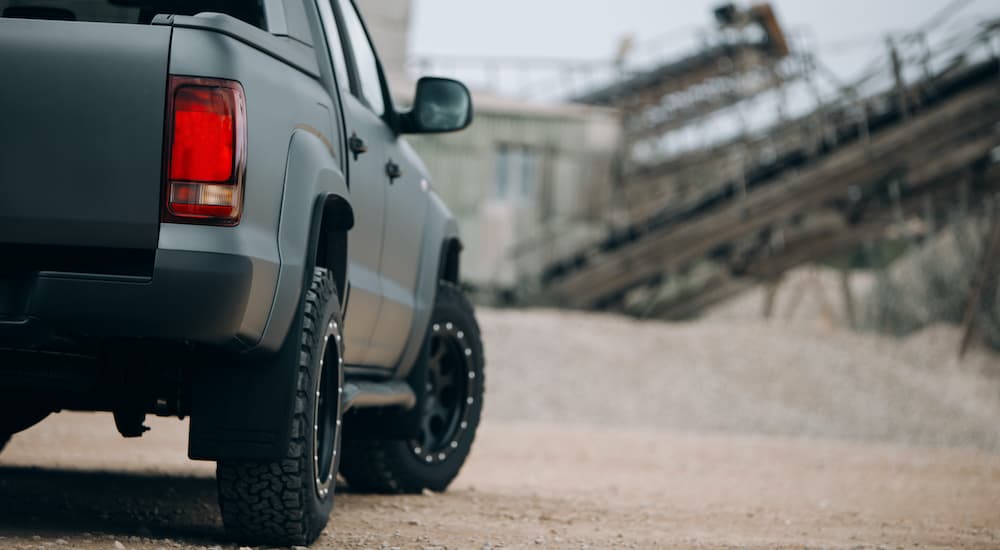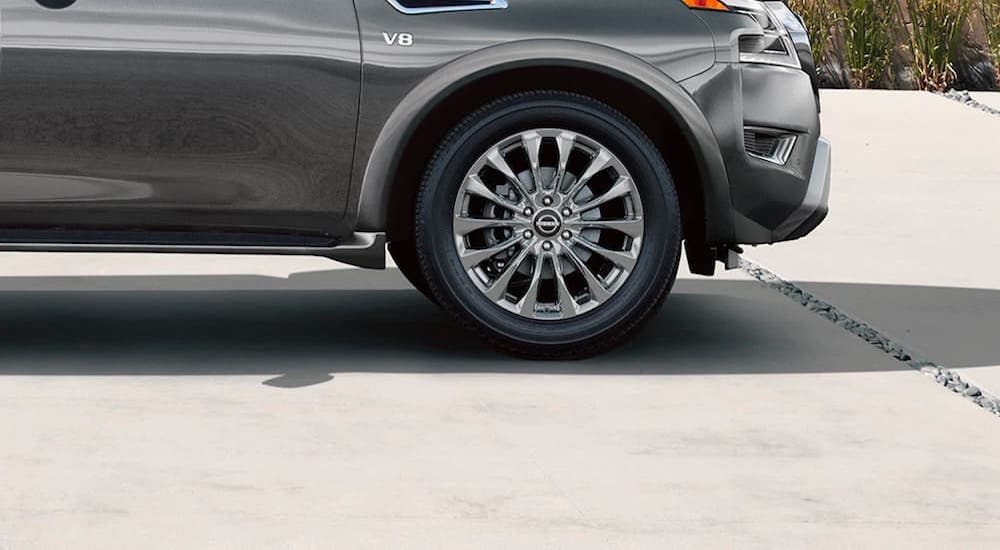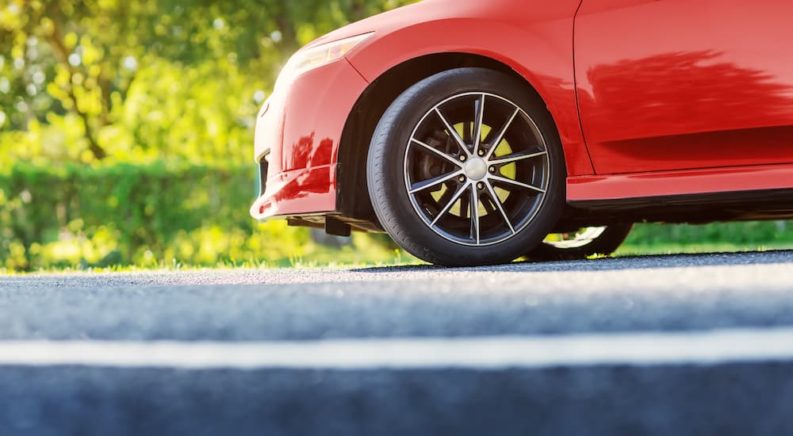There are a lot of factors to consider when choosing a new set of wheels for your car or truck. While most drivers will never even consider changing out the factory wheels for something new, putting a different set of wheels on your vehicle can be a great way to spruce up your ride, add a bit of personality, and dramatically improve performance. Whatever your reasons for getting a new set of wheels, there are a lot of factors to consider to make sure that you find a set that lives up to your expectations. We’ve covered some of the basics before, so now it’s time to move on to a few of the less obvious considerations before you start searching for a “tire shop near me” to purchase some new wheels.
Why Do You Want New Wheels?
It may seem silly, but the first thing to do before shopping for new wheels is to figure out why you want to replace your current wheels. There are countless options out there, and having a clear idea of what you are looking for is vital in paring down the possibilities. Of course, you may well have a few different reasons to get new wheels, so you might find yourself having to prioritize. Say you want to improve the looks of your car and upgrade its performance––do you lean towards sacrificing a bit of handling to get your ideal aesthetics, or do you prioritize function first? Answering that question ahead of time will make shopping a lot easier.
There are three main reasons to shop for new wheels:
Looks – changing the wheels on your car can completely alter its looks, and it’s an upgrade that anyone with a jack and a wrench can accomplish. If you’re mainly interested in aesthetics, it makes things easy since the only thing you need to pay attention to is whether your favorite wheels will actually fit on your car.
Different Tires – while you have a bit of wiggle room when it comes to changing tire size without changing wheels, any major changes in what type of tire you want to use will require different wheels. This can include switching to larger or smaller tires or putting on wider or narrower tires. Whichever way you go, it can have a dramatic effect on performance.
Different Features – different wheels can change the performance of your car or truck even if you don’t change the tires. This can include switching to lighter wheels for road cars or upgrading to beadlock wheels for a serious off-roader. In this case, the exact wheels you choose will depend on the features you are looking for.

What to Look for When Shopping for Wheels
Aside from making sure that your new wheels fit your car, there are several specs to look for when choosing new wheels. The main specs are weight, diameter, and width. All of these will have a direct impact on the performance of your vehicle. If you are looking to improve the looks of your car and don’t want to change how it handles, then simply search for wheels that have similar specs to your factory wheels in a design that you think looks better. However, factory wheels generally have fairly conservative engineering, prioritizing affordability and durability over performance. So if you are looking to upgrade your car, a new set of wheels can have a dramatic impact.
Diameter
The most obvious spec when it comes to wheel shopping is the diameter. Most cars come with 16-inch to 20-inch wheels, with smaller vehicles having smaller wheels. There is nothing preventing you from putting larger or smaller wheels on your ride, but it is important to consider the effects of changing wheel size. Increasing the size of your wheels (for instance, going from 18-inch wheels to 20-inch wheels) will sharpen the handling of your vehicle at the cost of some ride comfort. Larger wheels also tend to be more prone to damage from potholes, so you don’t want to go too large if you live in an area with poorly-maintained roads, and larger tires to fit your larger wheels will also cost more.
Smaller wheels have the opposite effect. You will have cheaper tires and see improvements in ride comfort, but handling will become more vague. However, before downsizing your wheels, you will need to make sure that the smaller size will fit over your brakes. The larger brakes on many modern vehicles mean that you may not be able to go much smaller than the factory wheels. Generally, performance cars will benefit the most from larger wheels, while off-road trucks will do better with smaller wheels. If you are getting a set of dedicated winter wheels, you may also want to consider going smaller to handle the frost heaves and road damage caused by harsh weather.
Width
While not as obvious as diameter, the width can be just as important when it comes to handling. The important consideration here is not the raw width of the wheel but the width of the wheel compared to the width of the tire. Any given tire size has a range of widths it can work with (for instance, a 215/45R17 Michelin Pilot Sport 4S is recommended for use on 7-8 inch wide wheels). Factory wheels are usually on the narrower side for the tires they come with, as this makes the wheels cheaper and helps protect them from getting damaged by curbs, but if you switch to a wheel on the wider side, it will reduce how much the tire flexes and improve steering response.
If you are switching to a wider or narrower tire than your car came with, considering the wheel width becomes even more important. Generally, wider tires increase mechanical grip, which is why sports cars have much wider tires than other vehicles. However, narrower tires can improve performance on loose surfaces from dirt to snow as they will dig through the soft upper layer to get to the firm surface beneath. It is possible to use a wheel that is significantly wider than is recommended for the tire. This is known as “stretching” and is popular on many types of show cars. While stretched tires can create a very distinctive look, it dramatically increases the risk of tire failure and should never be done on a car you use for any sort of performance driving.
Weight
Weight is the least obvious spec when it comes to wheels but possibly the most important. Wheels are part of a vehicle’s “unsprung mass” (weight not supported by the suspension), and small changes in weight will have outsized effects on acceleration, braking, and fuel economy. Factory wheels are generally fairly heavy for their size, so there is a lot of room to shave weight by switching to a new set of wheels––especially if you opt for high-end forged wheels instead of the more common cast wheels. The very lightest wheels are made from carbon fiber but cost a fortune.
Unfortunately, many aftermarket wheels prioritize looks over weight and are excessively heavy. If you are just out to improve the appearance of your vehicle, this isn’t something to worry about, but be aware that if the weight of a wheel isn’t listed, then it is probably reducing the performance of your car, even compared to the already heavy factory wheels. However, a super light wheel from a less well-known manufacturer may not be as durable as you would like, so if you are looking for major weight savings, it’s best to stick with the reputable brands.

It’s Time to Upgrade!
Putting new wheels on your car is one of the best automotive investments you can make. Although a good set of wheels can be expensive, new wheels can completely change the looks and performance of your vehicle. It may seem like there is a lot to consider when wheel shopping, and there is, but the payoff is more than worth it. No matter what you are looking to achieve, there is a set of wheels out there that will make you enjoy your vehicle more than ever. Now go out there and upgrade your ride!

